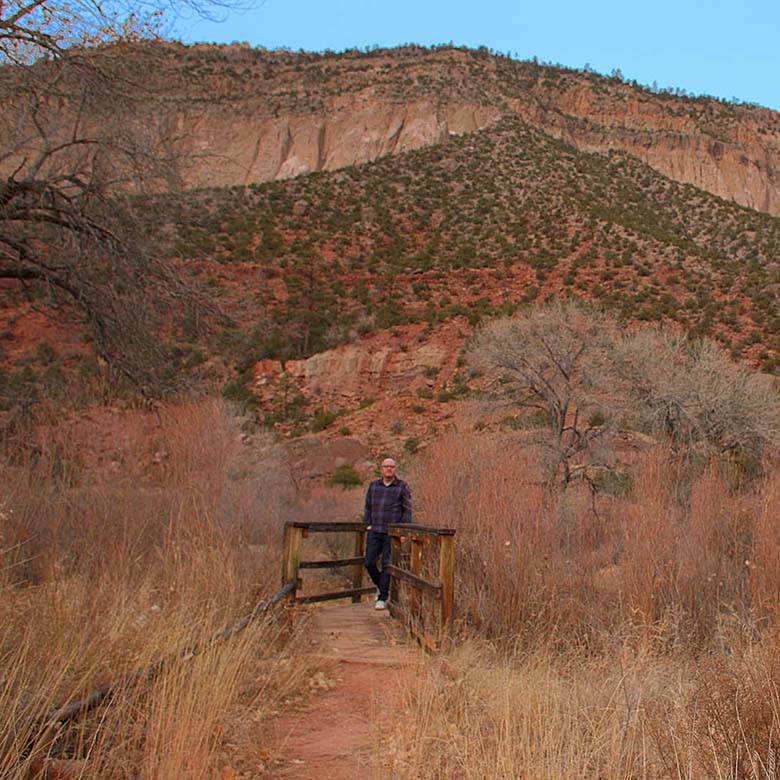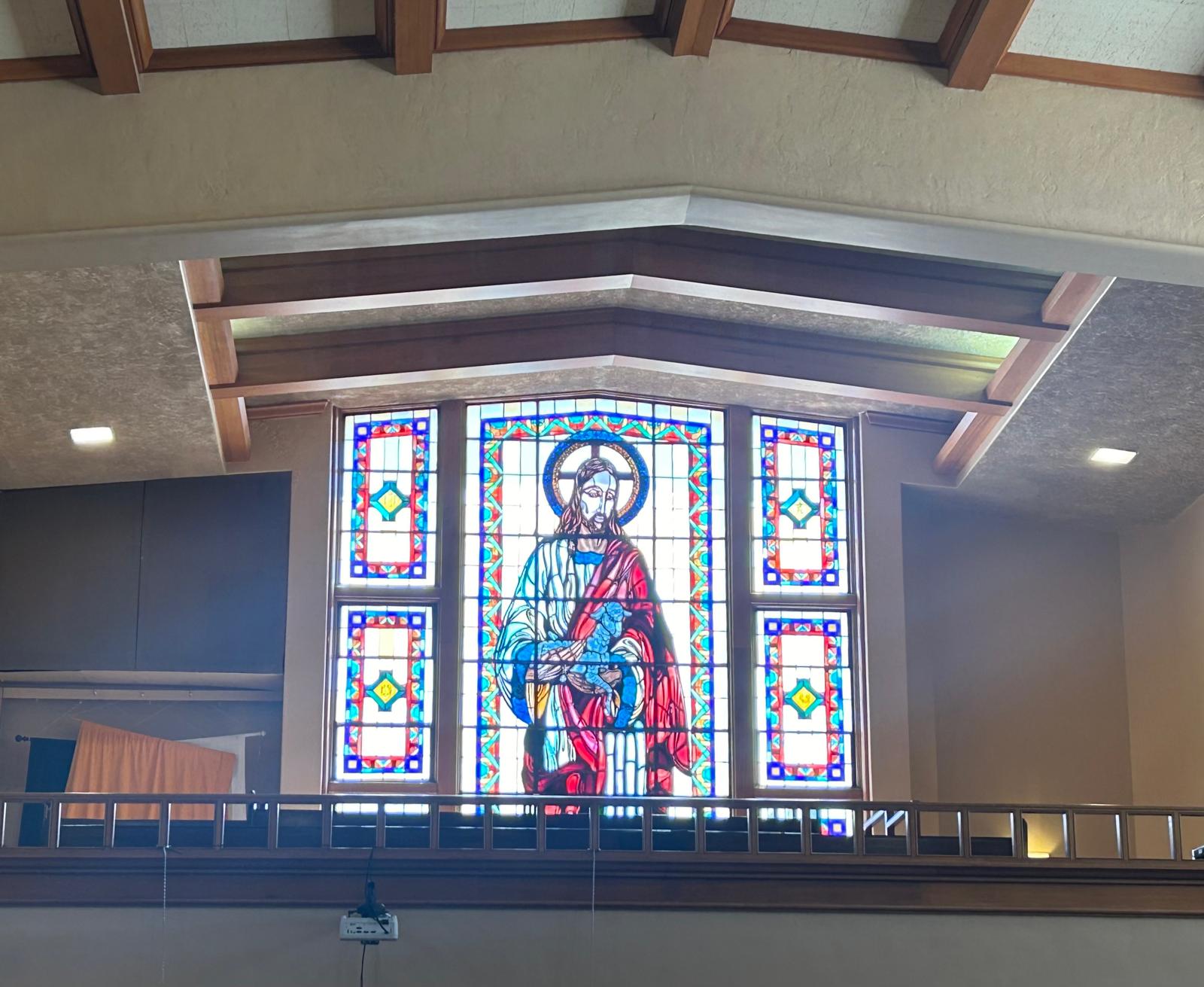
Balcony Time
When I was a child, my favorite place to be in the church was in the balcony. I remember feeling
as if no one could see me as I sat, sang, read, chatted, and shared snacks with my fellow young
balcony dwellers. This space became a haven, a place of freedom and a unique perspective on
the world below.
The balcony provided a literal and metaphorical elevation. From that vantage point, everything
seemed different—clearer, yet somehow more mysterious. It was a place where we felt a certain
autonomy, away from the direct gaze of adults, which allowed us to experience the service in our
own way. The hymns sounded sweeter, the sermons more distant, and the sense of community
among us kids was palpable.
Balcony time was more than just a physical location; it was a state of being. It represented a
space for reflection, camaraderie, and a touch of mischief. We were together, yet also alone in
our thoughts, able to observe the world around us from a safe, elevated distance. It was a place
where we could engage with our surroundings without the pressure of constant scrutiny.
As I reflect on those times, I realize how important that sense of space and freedom was, and still
is! It was a formative experience that taught me the value of having a place to retreat, to gain
perspective, and to simply be myself. In many ways, that balcony time was a microcosm of what
we seek in our daily lives—a balance between community and solitude, engagement and
observation.
Today, the idea of balcony time still resonates. Whether it’s a physical space like a balcony or a
metaphorical one, having a place where we can pause, reflect, and observe is crucial for our
well-being. It’s about finding moments to step back, gain perspective, and appreciate the world
around us from a different angle.
So, let’s cherish those balconies in our lives, both literal and figurative. They remind us of the
importance of creating space for reflection and connection, a place where we can enjoy the view,
both inside and out.
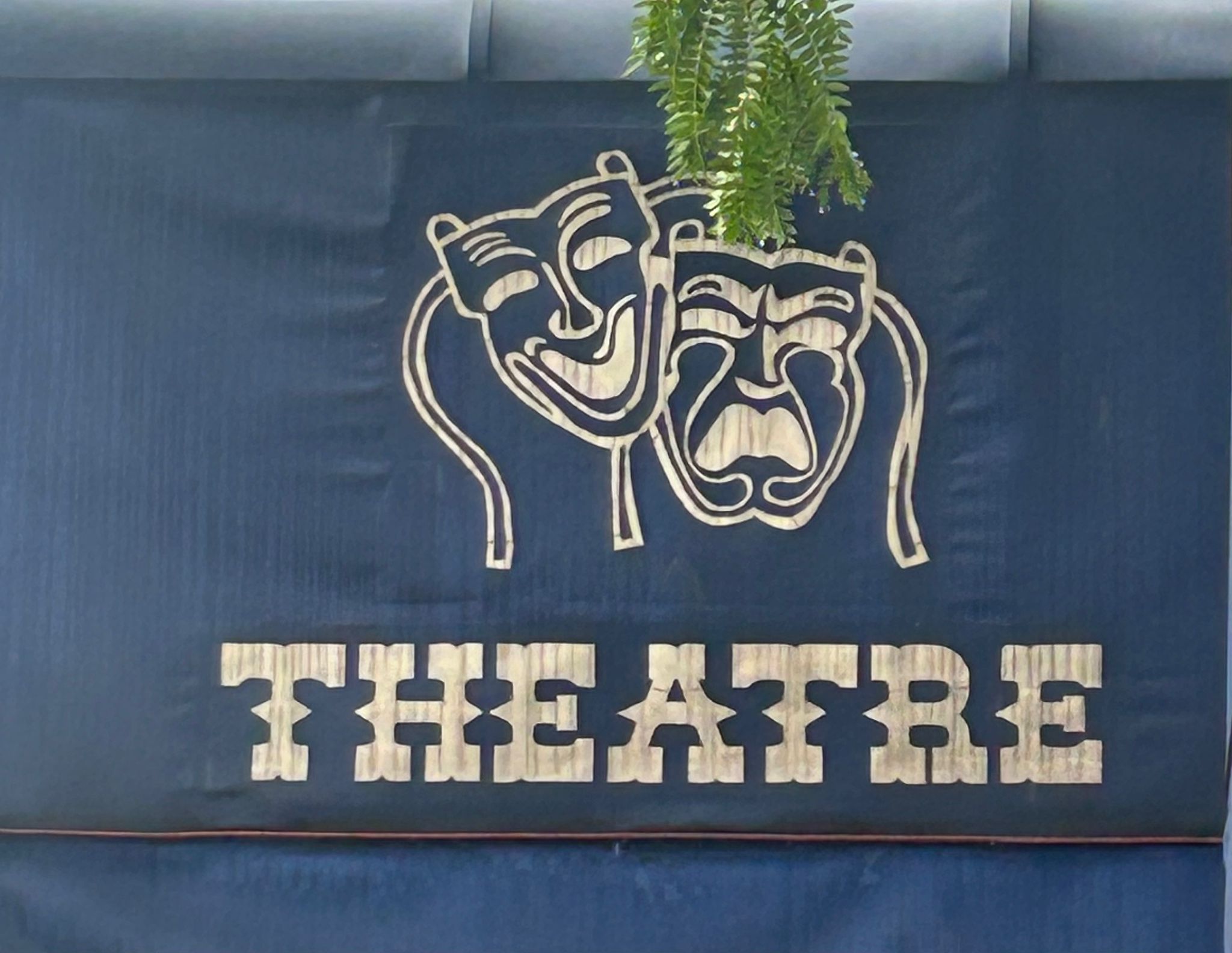
Shame: The Swampland of the Soul
I am a big fan of taking a night and going to the movies. I love the entire process of purchasing the perfect
seat, overpriced movie popcorn, a real coke, and candy. I fully enjoy the corny previews and sincere
attempts by the theater to ensure everyone turns off their cell phones and cut down on chatter. Best of all,
the experience of the movie theater brings a bit of separation and suspension from the world outside and
allows me to live in a space I typically do not occupy.
Unfortunately, due to managing schedules and life in general, I am not able to visit the movie theater
often, but when I heard that Inside Out II was making its way to the theater, I was all in. The Inside Out
movie franchise is one I enjoy quite a bit. As a therapist, I am well aware of the dry well in which many
of us find ourselves in when attempting to identify and name our feelings. I am too well versed in the
various methodologies in attempting to assist people in the art of identifying and naming feelings. Inside
Out is one of those movies that comes along and greatly assists its viewers in an engaging way to visually
understand what feelings are, how they interact together, and the importance that each feeling plays in our
lives. Well done!
For Inside Out II I was interested in the introduction of the new line of feelings, specifically the feeling of
Anxiety and I assumed that we would also be introduced to Shame. I do not know why I was under the
impression that Shame would be included as there was no indication that this would be the case. I knew
from articles written regarding Inside Out I and II that therapist had been consulted in the creating of the
movie, it’s story line, and what feelings to include and I simply assumed we would see Shame. As the
movie progressed, I realized that although I was going to experience Anxiety, Shame would not be
present (one could read a great deal into that statement!). Do not get me wrong, I enjoyed Inside Out II,
but I was curious about the absence of what I view as a critical feeling. So I decided to do a little research,
and discovered that Shame was originally going to be included in the movie, but the producers felt the
feeling was “…too heavy and not fun to watch.”
Carl Jung – Swiss psychiatrist whose work on archetypes and the collective unconscious are still studied
today – is credited with identifying shame as the swampland of the soul. I appreciate the visual this
description brings as shame can be a difficult feeling to explain. In the simplest terms, while the feeling of
guilt is about an action: “I did something bad,” shame is about the self: “I am bad.” Delving into the
feeling of shame is critical as we each work to come to a better understanding of who we are. If we take
time to navigate the swampland of shame, we learn to be vulnerable, empathetic, and care for ourselves
which in turns builds emotional intelligence and emotional resilience.
My hope for you today is that you do not back away from feelings or experiences that seem too heavy, not
fun to watch, or like a swampland. Share your story, learn and grow from each of your experiences, and
perhaps by the time Inside Out III makes its way to theaters, we will finally understand and met Shame.
Blessings on the Journey,
Rev. Dr. Kelly Jackson Brooks, LPCC
Executive Director
Chrysalis Counseling For Clergy
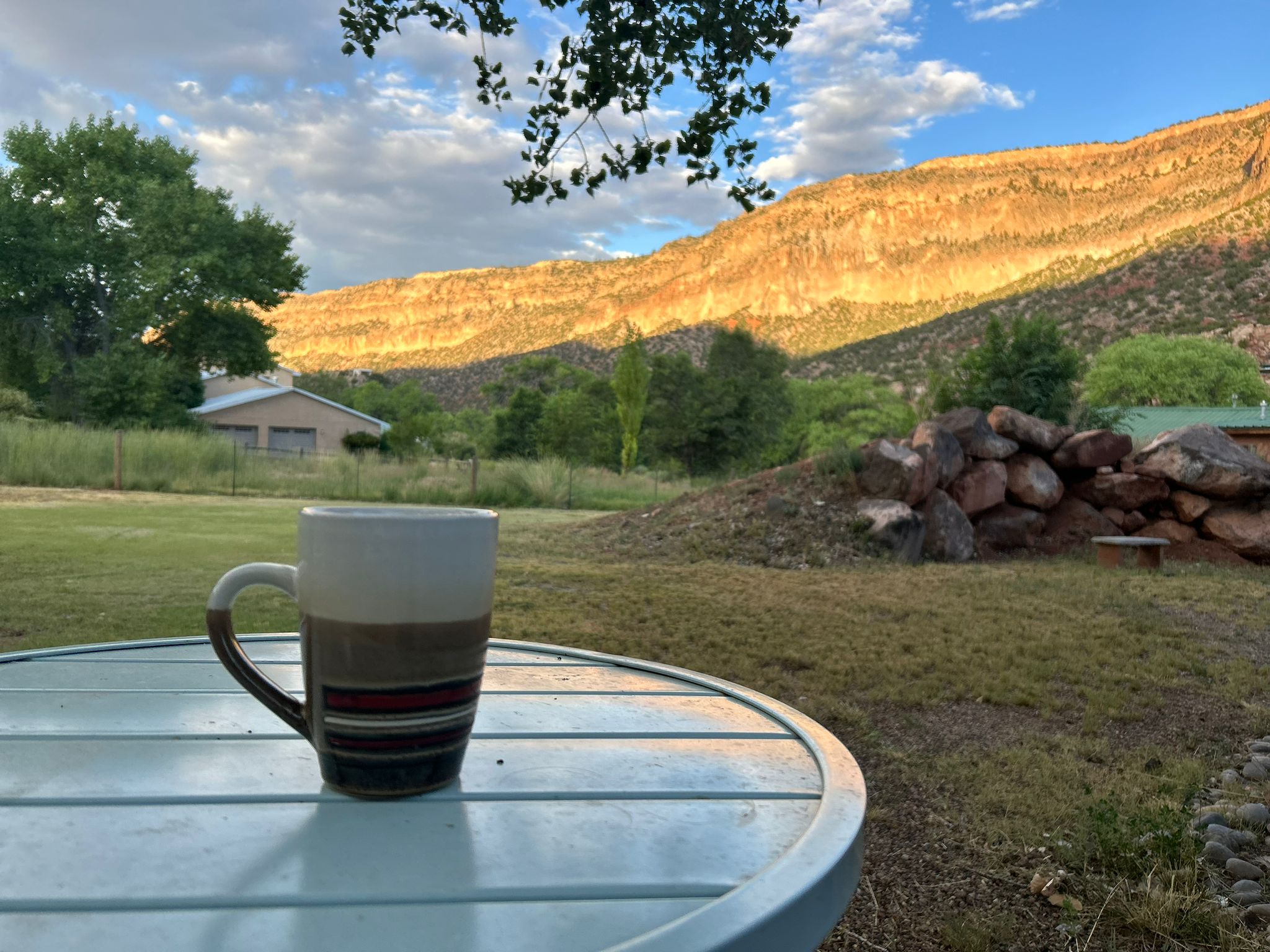
Thin Spaces
In the fall of 2019, I had the privilege of participating in a retreat for mental health and spiritual
care providers focused on the theme of Thin Spaces. I was familiar with the concept of Thin
In the fall of 2019, I had the privilege of participating in a retreat for mental health and spiritual
care providers focused on the theme of Thin Spaces. I was familiar with the concept of Thin Spaces, but to say I had spent any time contemplating or discerning what this concept means to
me would be misleading. As you can imagine, I was both excited and hesitant to delve into the
topic as I had a deep suspicion the retreat would be more about how I was to embody Thin Space
then it was for me to simply digest the concept to then teach it to others. To be completely
vulnerable here is to say that I am one who is used to being the practitioner and not the patient
and I am not naturally good with the tables turned.
This particular retreat took place at a picturesque retreat space in Northern New Mexico. The
backdrop of the location seems to be almost AI generated as the sky was perfectly open the
entire two-days of the retreat and seemed to be the clearest blue/aqua color you can imagine, and
don’t even get me started on the mountains!
I remember the retreat facilitator well; she was a small-framed petit woman who seemed to slide
about the space effortlessly and she spoke in a comforting and clear manner which drew all 12-
participants in as if we were simply feeding on every word. She began by speaking on the topic
of Thin Spaces as transitional and transformative areas that exist between two distinct spaces.
She spoke of the connection to the Divine and the importance of allowing for a heightened sense
of connection to the divine or the transcendent. The second half of the day was focused on Thin
Spaces as symbolic periods of personal transition, such as rites of passage, where individuals
move from one stage of life to another, including career and call. These spaces and marks of
time, provide opportunities for introspection and self-discovery, helping individuals process
changes and grow emotionally and psychologically.
By the conclusion of Day I, I was exhausted but filled. Falling asleep was easy and waking to
Day II seemed seamless. Day II was a day of silent retreat where our assignment was to
contemplate our Thin Spaces – what we were experiencing now as a period of personal transition
and where we considered our physical Thin Space to be.
Today, I find myself in a new Thin Space and I plan on visiting my physical Thin Space soon. I
believe this is a time that finds each of us longing for Thin Spaces in a multitude of ways and I
encourage each of you to sit and contemplate this time of transition and transformation,
connection, reflection, and growth. Recognizing and embracing Thin Spaces so they can lead to
deeper understanding and appreciation of the complex and interconnected nature of all you are
and all you are in this world.

It Is What It Is
I am excited to announce that last week, I was on a real vacation! What I mean by a real
vacation is this – this particular trip had nothing to do with my profession nor was it
tacked on to a work-related trip, I did not take work-related projects to complete rather a
silly romance novel I found for $5.00 at the local bookstore, and best of all I had zero
access to the internet. There was plenty of food and merriment, relaxation pools,
entertainment, and quality time with family, so I was well taken care of.
This trip however, did come with a few moments of shifting carefully-created plans and creating
new ones in the span of 30-minutes. You see, I was on a cruise originally headed into
what would be a category 4 storm named Beryl. The ports of call changed in a moment
to places I have been before. To top it off, it seemed that Beryl followed the cruise
itinerary only a few days behind us so, what was once a pleasant beach and Myan Ruin
location quickly became a pile of dismantled chairs and fruit stands. To those of us on
the ship, this was a minor inconvenience in relation to the devastation felt by the people
in Beryl’s wake.
On the return flight, we had another minor inconvenience. Our connecting flight was
delayed by approximately 5-hours due to yet another storm, rerouting of planes, a fuel
reload, and crew changes. This put us home and in our own beds back from the
pleasant original time of 6:00pm to 12:30am. Again, a minor inconvenience in relation to
the airport staff and airline reorganizational stress that was happening behind the
scenes as we lounged in our chairs drinking soda and eating chips.
Throughout the trip – including the last handful of hours waiting patiently in the airport
for our flight along with 160 other Albuquerque-bound travelers – I took note of how
people respond to moments of stress and change. Some, not so well as displayed by
how they chose to speak to their traveling companions and airline staff, and others
seemed to go with the bumps with ease as displayed by smiling faces and offers to
assist parents with overly tired and hungry children. Now, If I am being honest with
myself and all of you, I would say I am somewhere in the middle regarding my stress
response and I will leave it at that!
In both the cruise change of itinerary announcement and the airport situation, I heard
possibly the most dismissive comment known to the English language uttered again and
again – “It is what it is.” This phrase, to me, is not helpful and does not share empathy
to those whom change is difficult for. I remember my mother once commenting
sarcastically on this phrase saying, “It is what it is – It ain’t what it ain’t!”
Travel can be stressful event to the most experienced travelers among us. Life can be
stressful even to the most experienced among us. In this vein, I believe language to be
important. I believe self-awareness and the understanding that we don’t understand
what others are experiencing is important. In life’s most stressful moments, let us watch
our language, let us embody self-awareness, and let us not be dismissive to ourselves
or to others.
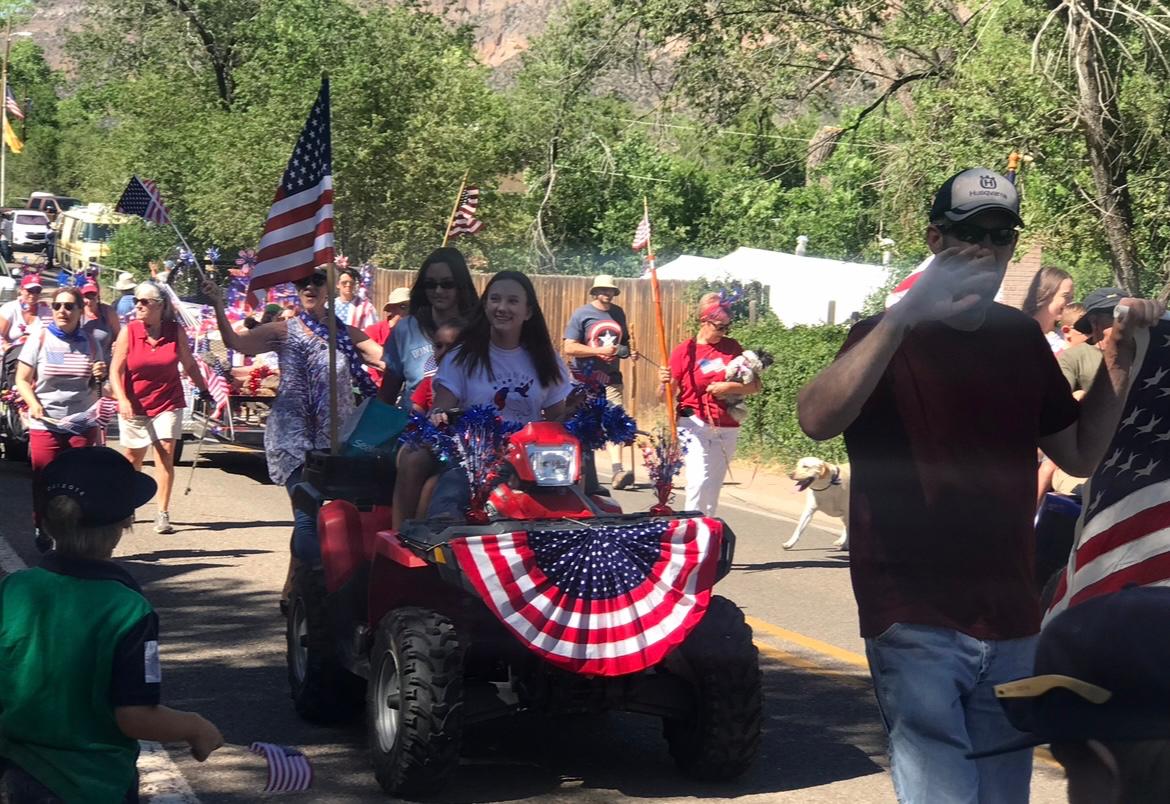
Americana
Growing up, my extended family would gather in a New Mexico ski resort town every year for
the 4 th of July holiday. This sleepy mountain town where we gathered for our annual family
reunion existed purely on tourism and during the winter months, this was a busy village filled
with skiers and snowboarders alike. To the villages credit, they had managed to provide a
smattering of summer activities for the non-skiers of the world with a green mountain backdrop
that was perfect for my family.
What I remember from my family 4 th hot summer gatherings, was a swimming pool, an ice-cold
river where you could wade barefoot in the water, a ski-lift scenic ride, trinket shops, and the
culmination of the town’s annual 4 th of July parade. This parade was all a small-town Americana
parade should be and it never disappointed me! The parade consisted of locals riding in
decorated trucks throwing candy to the crowd, a few convertibles with politicians smiling
joyfully in the open tops, the local high school band belting out all the 4 th favorites, and a local
civic club driving mini cars and handing out mini–American Flags.
Following the parade, my extended family would quickly gather in one of the many families
rented cabins for burgers, hot dogs, pasta salad, and dessert – lots of dessert! I remember this
time being joyful as the family gathered and shared stories of their past and hopes for the future.
To me, this is what this season is all about. It’s about people who care for each other, gathering
and simply sharing life together. It’s about recognizing all the privileges we have and
recognizing those who gave of themselves to ensure these privileges to the whole.
I recognize, that because we are humans with individual human experiences, thoughts, and
voices, we have varying opinions on the logistics and intricacies of this holiday. I also recognize
and deeply believe that this season has a special beauty to it because of the ability to share our
varying experiences, thoughts, and opinions.
I encourage you to take a moment this holiday to say thank you and to celebrate the privilege of
Americana with your family, friends, and neighbors.
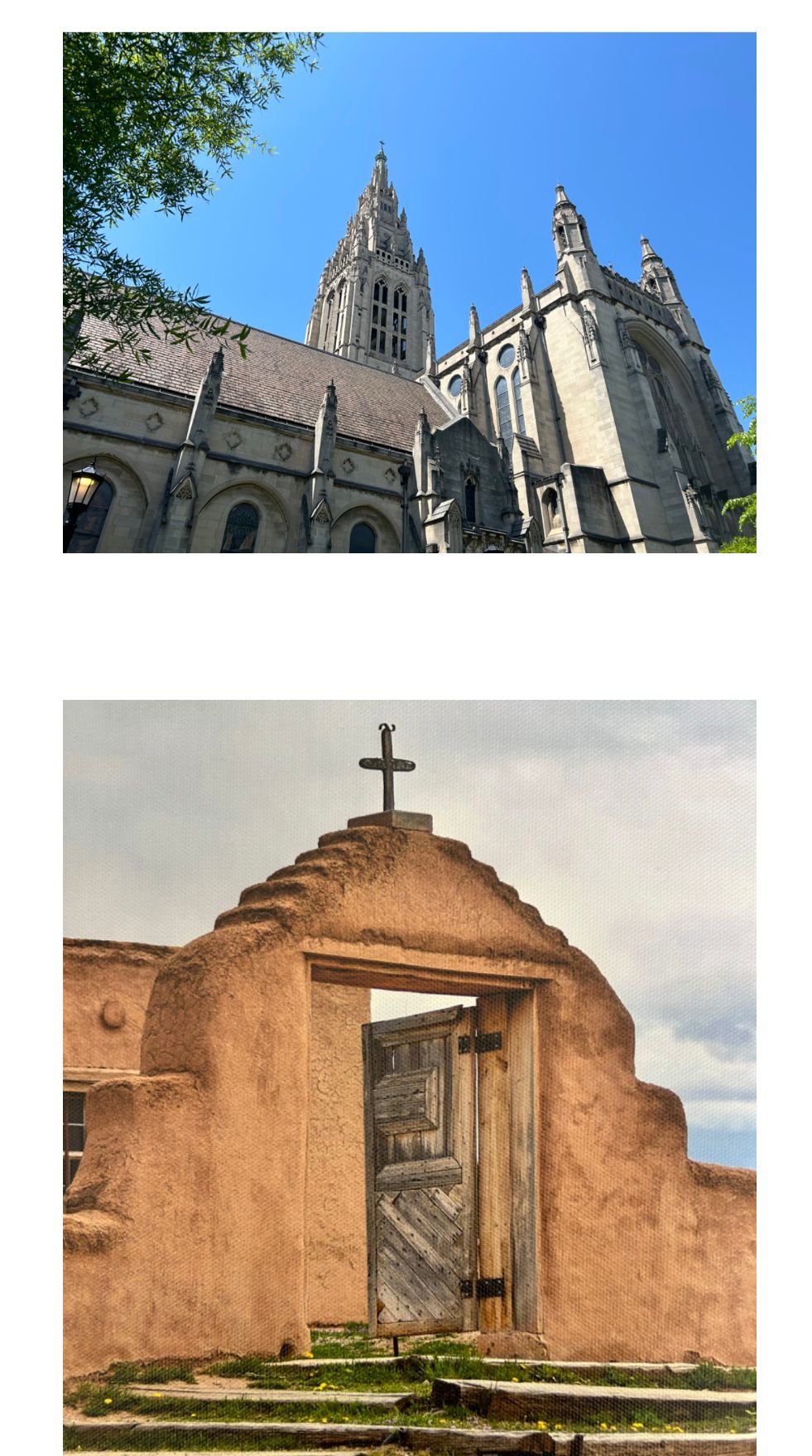
Lessons From Landscapes
A month or so ago, my spring travels found me in Pittsburgh, PA. I was attending the Festival of
Homiletics as both an attendee and a host of a Chrysalis Counseling For Clergy booth. I have
attended this event for several years and I have developed a fondness for this gathering for many
reasons: 1) For the ecumenical gathering aspect and 2) For the physical annual shift in location
that allows for a person like me to see parts of the country I may not otherwise consider.
A few things to note about the City of Pittsburgh – Pittsburgh is known for its industrial past, and
the city’s landscape is marked by a bold juxtaposition of old steel mills and modern skyscrapers.
The transformation from an industrial powerhouse to a hub of innovation and green spaces
demonstrates a community’s ability to dominate and reshape its environment. Pittsburgh’s
landscape design reflects resilience and reinvention, showcasing how a community can assert its
presence and adapt over time. This city is intrigued to me, and I initially could not name what it
was that gave me pause, but I believe it has something to do with the very counter-cultural aspect
to the environment in which I live – the two cityscapes are simply two very different places
culturally and architecturally, and I think the two have something to do with one-another.
In contrast to Pittsburgh, the NM lanscape in which I live and have been raised in, is renowned
for its unique architectural style and harmonious relationship with the natural environment. The
adobe buildings, with their earth-toned hues, seamlessly blend with the desert landscape. The
area’s design philosophy emphasizes sustainability and respect for the surrounding ecosystem.
Here, community members often prioritize integration with their environment, reflecting a desire
to be part of a greater whole rather than to stand out (although there are always the exceptions!).
This approach fosters a sense of unity and continuity with the past and nature.
As I reflect on these two environments, I am reminded of how we as people show up and
approach others and situations in our communities. What lessons are we to learn from the
landscape and architecture in which we dwell? Do we show up with a sense of resilience and
reinvention much like that of Pittsburgh PA, or do we show up in a more harmonious and
unifying manner as is displayed in the cities and towns of NM? Or, do we choose to blend the
two depending on our mood or context?
I think we have a great deal to learn from our experiences – both our experiences with people
and in our experiences of observation of culture and landscape. My wish for you this week is that
you reflect on how you embody your experiences and observations in this world, and how they
make you who we are in how you show up in this world.
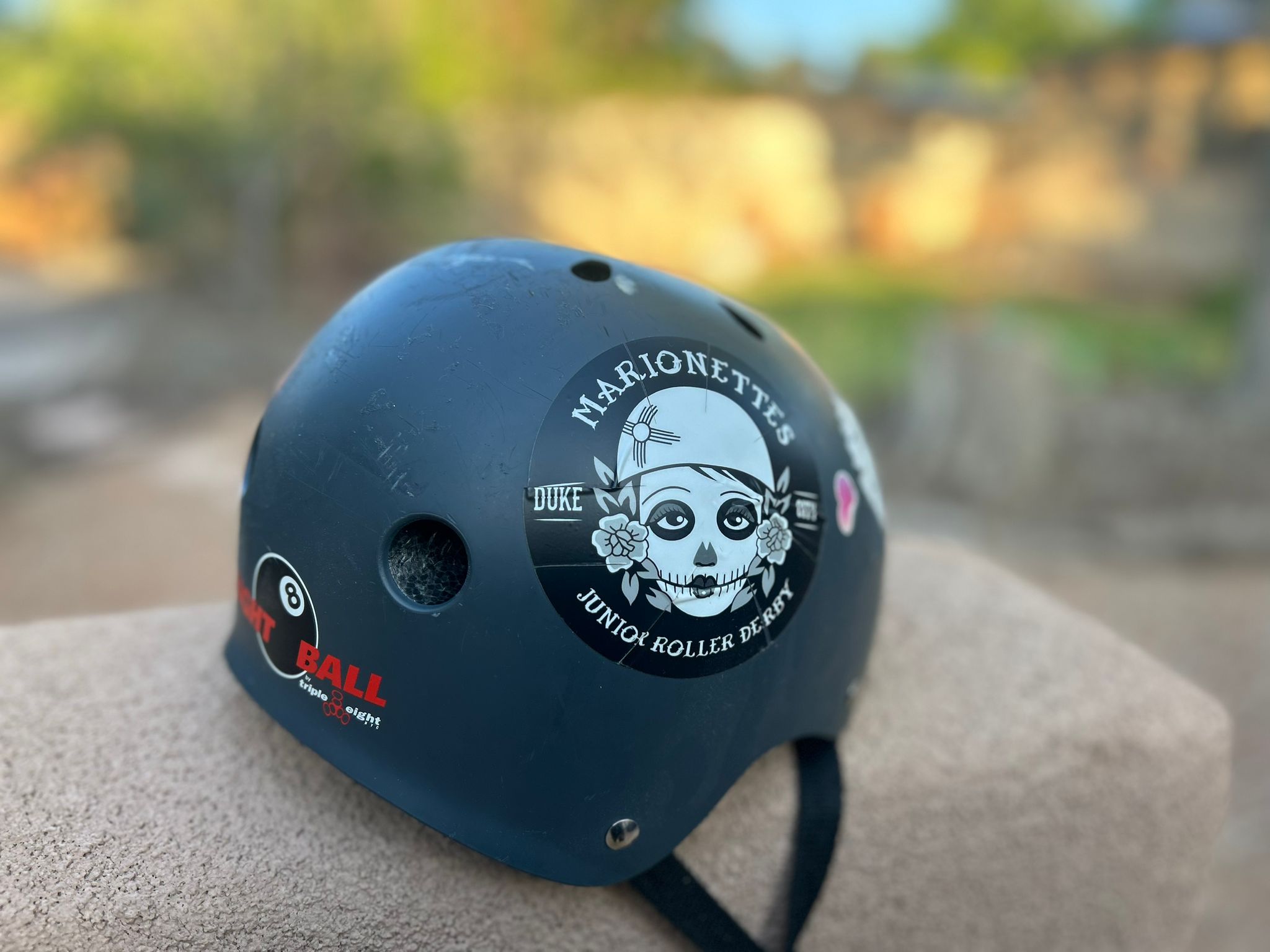
Living Into the Golden Rule
When my daughter was in 3 rd -5 th grades, she participated in our local Junior Derby League on a
team called the Marionettes. Just image a group of young girls ages 8-12 expressing themselves
in colorful dress and makeup, and playing a full-contact roller-skating sport. Everything about
this was fun for me. I enjoyed watching the practices and bouts, listening to the 80s and 90s
music blasting from the announcer stand, and the celebrations following every game where
everyone seemed to support and cheer-on one another regardless of if they won or lost.
What I think impressed me the most about the Jr. derby experience, was each teammate’s ability
to make everyone feel welcomed. I have no idea if this group of 10 girls participated in any
formal religious practices or traditions, but what I do know is that they treated each other just as
we are told and just as we preach again and again: “Treat others just as you want to be treated”
(Luke 6:31, CEV). This group of 10 girls lived into the Golden Rule in a way that was as simple
as breathing, and I felt privileged to witness this type of witness. And yes, I believe it is as
simple as that, and I believe if we lived our lives with this tattooed on our hearts and lived out in
our lives, we would be a better society for it. But we don’t at all times, and that includes me.
When we debase another or aim to take one’s voice from them, we have abandoned this Gospel
lesson. When we choose to treat another as less then or make unjust assumptions about another,
we have abandoned this Gospel lesson. When we forget or choose to turn our backs on the
commandment to Love One Another, we have abandoned this Gospel lesson. I thank God for
communities of friends who remind us and teach us Grace – who remind us that although we do
not always live into the Golden Rule, there is always room for redemption and to be better.
This week, take a moment to consider how you live into the Gospel lesson to “Treat others just
as you want to be treated” and if needed, what areas in this simple lesson need to be redeemed in
your life.
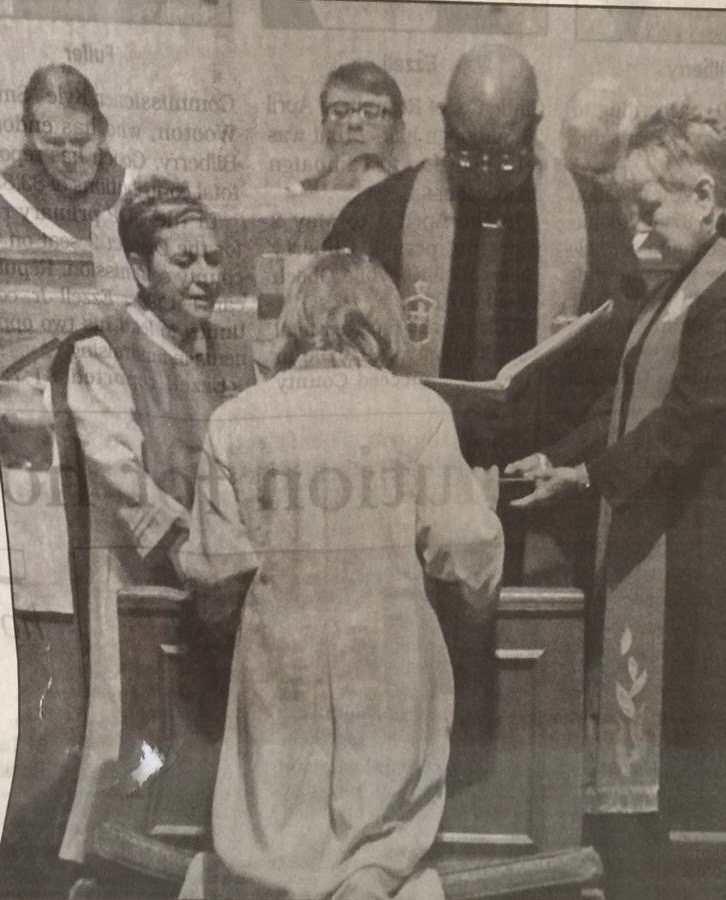
Passing The Torch
This is my absolute favorite photo of my ordination. The photo itself is from the local town
newspaper where I was ordained. The photo is a little grainy and the details are difficult to make
out, which is one of the many reasons this is the photo I have framed in my office.
When I look at this photo, I am reminded of not only the day I was ordained, but I am reminded
of the somewhat grainy and gritty process I took towards that day. I am reminded as well of the
somewhat grainy and gritty place where I was kneeling when United Methodist Bishop, Cynthia
Fierro Harvey, placed her hands on my head. I remember how her hands felt, the shoes she was
wearing, and the smell and feel in the air of the sanctuary where we gathered on this hot summer
Saturday afternoon.
Today, as the anniversary of my ordination approaches, I am reminded of the importance of not
only sharing the grainy and gritty knowledge we have gained on our ministry journeys with
others, but the vital tradition of passing the torch concerning that which we have learned about
ourselves and the leadership positions we have held – the mountain-top experiences, the
growing-edge type of experiences, and everything in-between. This transition of leadership
privilege and knowledge ensures the continuity, growth, and vitality of the church but, it’s
complicated, isn’t it?
We place so much of who we are and our worth in the work that we do, and we often forget the
importance of leaving a place or leadership role in the hands of the generation of leaders who
follow us. We forget that our worth is not tied up with titles or positions, rather how we treated
people and the lessons we gained while holding those roles. Without the passing of the torch and
holding true to who we are as individuals, we are left with gaps in our systems of institutional
leadership, which leads to institutional and personal resentment.
So, I leave you with this – What is your story of grainy and gritty ministries? When was the last
time you shared your story? What does passing the torch look like in your life?

The Litmus Test
I remember the morning well…
It was mid-February and to say I had a lot going on in my life both personally and professionally
would be the understatement of the year. I was feeling both exhilarated and emotionally
exhausted. I was not eating or sleeping well, and I was feeling as if my emotional state was
changing by the minute, if not by the second. Some significant shifts were about to transpire in
my life, and I desperately needed to be on the other side of the month – and it felt like February
was taking forever!
On this particular February morning, I could hear the birds outside and I could see the sun
working hard to get me moving. I had already woken up late and their seemed to be something
wrong with the hot water in my home, so my shower was cold. All this aside, I was looking
forward to my first morning cup of coffee – the one thing that starts my day on the right foot
regardless of which side of the bed I rolled out of. As I walked into the kitchen I grabbed my
coffee mug, filled it with the perfect cup of coffee, and as I turned around the cup slipped out of
my hand and went crashing to the floor. I still can picture the cup shattering and hot liquid
spilling in a million different directions.
What happened next surprised even me…
You see, this type of incident has happened to me before. I am typically moving too quickly in
the morning and not being fully present with myself physically or mentally, so the loss of a
coffee cup and the liquid found inside is not new. This February morning was different – instead
of simply taking in a deep sigh and grabbing the broom, I collapsed on the kitchen floor
hysterically sobbing. The mental health litmus test indicated that I was not doing so well. I had
worked hard to convince myself and others that the balancing act that I was in was going well,
and that the changes on the horizon for me were being greeted with a sunshine emoji. Clearly,
that was not the case. The result: A call to my therapist and a day with self-giving permission to
clear my calendar.
We have all been there. There are days when the Litmus test indicates all is well, and there are
days when the Litmus test indicates we need to step back, breathe, and take a day.
Today, my hope for you is that you can take step back, breathe, and take a day. You invest
yourself in your Callings, your ministries, and to those who support and surround you – and
today, you need to take a look at you saying, “I am a Beloved Child of God.”

In Memory
I was once told that memories sit in a variety of ways – some sit softy, some violently, and some
in a much more neutral way. In the 24-years since graduating with my MA in Counseling and
receiving my first licensure, I have had the privilege of sharing space with people who are
working through complex times, and I have come to fully appreciate this sentiment regarding
memories.
Over the weekend, I attended the memorial service of a colleague and friend of my father. For
many reasons, this service sat in a way in which I struggle to find the words to describe. For one,
the memorial service took place in the town where I spent my elementary, middle, and high
school years. Like many people, my formative years in a small town sits in both joyful and
complicated ways. The daughter of the recently deceased was a grade ahead of me in school and
we attended school and church together throughout our years in our hometown. To add another
layer, my father died a little over 15-years ago, and the deceased spoke at my father’s memorial
service. In my memory, he not only spoke, but he shared memories of my father that I did not
know, which added an element of joy for me in a profoundly dark time.
We each hold memories of those who have gone before us, relationships which have changed or
come to an end, and memories of physical spaces that hold deep meaning for us. Memories that
sit and make us laugh, memories that bring a sorrowful note to our souls, and memories that we
work hard to move through. Memories sit and become part of our narrative and help to form us,
regardless of their origin.
One more thought to share: The image this week is of First United Methodist Church in Portales,
New Mexico. The structure you see was a safe place which held many memories of teaching me
about my faith as a young person, what it means to be loved and cared for, the joy of potlucks,
youth lock-ins, and so much more. This House of Memories was torn down in the early 2000s –
approximately a decade after I moved away – and was replaced by a new and more modern
structure. I realized as I sat in this new structure in memory of my father’s friend and colleague,
and behind his daughter, that I missed the old sanctuary – I missed the brick walls and wood
floor; I missed the balcony where I would sit with my friends during worship and laugh and sing
as loud as we could as if no one could hear us; I missed the high ceilings with the 1970s light
fixtures; and I missed the smell of the space. I think what I missed most of all in that moment as I
sat in this new space, was the childlike wonder and magical awe I had for a place that now holds
so many memories for me.
I know it’s OK to work-through both joyful and complicated memories, and I know it’s
important to realize that we each create sacred memories wherever we find ourselves.
Let us be people who share our memories – whatever they are! – and are present and open to
ever-forming new ones.
In Memory,
Kelly
Learn More

